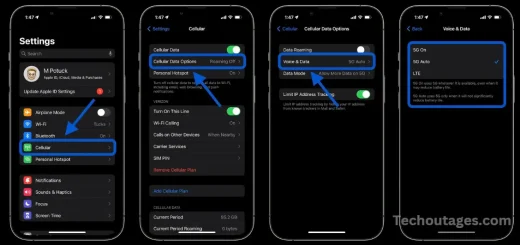An October Apple event suddenly looks unlikely
Apple has just unveiled a new iPad mini featuring Apple Intelligence support. This update isn’t just significant for iPad enthusiasts—it could also have broader implications for Apple’s upcoming October event. Here’s what today’s announcement could mean for the company’s plans moving forward.
An October Apple event, once widely anticipated, now seems increasingly unlikely. While Apple has traditionally used this time to unveil new products and updates, recent developments—combined with shifting industry dynamics—suggest that the company may be reconsidering its plans. With new announcements already trickling in, it appears Apple may be taking a different approach this year, leaving many to wonder if the usual October showcase will happen at all.
New iPad mini makes event prospects slim.

Historically, Apple has launched new iPhones and Apple Watch models in September, followed by another event in October that typically focuses on the Mac lineup and often the iPad as well. This year, the expectation was that Apple would continue that pattern, with several new products rumored to be on the horizon.
The list of anticipated releases includes:
- M4 MacBook Pro
- M4 Mac mini
- M4 iMac
The iPad mini was also expected to be part of that lineup.
A new base model iPad was initially slated for release this month, but more recent rumors now suggest a delay, with a potential launch pushed to early 2025.
Given the iPad mini and the M4 Mac trio, an October event seemed likely—a short affair focused on Apple Intelligence and how it enhances these new devices. However, with the surprise early announcement of the iPad mini, the likelihood of a traditional October event now seems much slimmer.
Expectations for M4 Macs
Based on what we know about the upcoming M4 Macs, there doesn’t seem to be much that would warrant a full-fledged Apple event.
The MacBook Pros are expected to get the M4 chip, along with some incremental upgrades, but no significant design changes. Similarly, the M4 iMac’s main selling point could be the addition of new USB-C accessories—hardly a groundbreaking feature.
That leaves the Mac mini as the one device with more substantial changes. The new M4 Mac mini is rumored to be significantly smaller than previous models, but even that might not be enough to justify a significant event. A simple press release announcement seems more likely at this point.
What Was Expected?
Apple’s October event is traditionally a time when the company unveils updated hardware—particularly iPads, Macs, and sometimes new wearables or accessories. In 2023, the expectation was no different. Rumors and leaks had suggested several potential announcements, including:
- iPad Pro (2024): With a major design overhaul and potential upgrades to Apple’s M-series chips, many expected a new iPad Pro to debut in October. A redesign featuring OLED displays and improved performance was among the top rumors.
- MacBook Updates: While Apple had already released new M2-powered MacBooks earlier in the year, an October event was seen as a likely platform for introducing even more powerful machines, possibly featuring Apple’s next-generation M3 chips.
- Apple Watch Series 9: Although the Apple Watch Series 9 debuted earlier in September, rumors about new health features, like blood sugar monitoring, continued to circulate, suggesting some incremental updates might arrive in October.
- Apple Silicon Chips: Industry analysts were hopeful that the company might offer new updates or even a sneak peek at its upcoming M4 or M5 chips for future Macs.
May you also like it:
Download iPhone 14 and 14 Pro wallpapers
Download New iPhone 15 Pro wallpapers
Iphone Se 4 Coming Next Spring: Everything you need to know
Why the October Event May Be Unlikely
While Apple’s fall event has become almost a tradition, recent developments are casting doubt on whether the company will hold its annual October gathering this year. There are a few key reasons why this might be the case.
1. Timing of Previous Announcements
Apple’s September “Wonderlust” event already saw the unveiling of the iPhone 15 series, Apple Watch Series 9, Apple Watch Ultra 2, and a refreshed AirPods lineup. This packed event took up much of the usual space for major new product announcements. While Apple has often spaced out its product launches, releasing updates at various times of the year, this September event may have effectively closed the door on a major October presentation.
2. Global Economic Conditions and Supply Chain Issues
The global tech industry is facing ongoing challenges. Apple is not immune to these issues, from supply chain disruptions to fluctuating demand for consumer electronics. Analysts have speculated that Apple may be choosing to hold back specific product releases to avoid logistical complications or to smooth out supply chain issues before launching new devices. In this context, it’s possible that the company may not be ready to announce new products until later in the year.
3. The Need for a More Deliberate Rollout of New Products
Apple has become more strategic in how it rolls out its product updates, sometimes opting for a slower, more deliberate release schedule. In some cases, this has meant holding off on big announcements, especially for the iPad or Mac lines, which don’t have the same demand spikes as the iPhone. Instead of rushing an October event, Apple might be choosing to wait until its upcoming product lines are polished and fully ready for prime time, possibly even aiming for a later 2024 or early 2025 launch.
4. The Focus on Services and Software
Apple has increasingly focused on its growing services segment in recent years, including its subscription services (like Apple TV+, Apple Music, and iCloud), software enhancements, and platform updates. While hardware is still a major part of the equation, some believe that Apple could shift its focus toward bolstering these areas in the second half of 2024, possibly saving any major hardware reveals for a future event in 2025 or later.
What Could Happen Instead?
While the classic October hardware event may be off the table for now, it’s important to remember that Apple has always been adept at surprise announcements. Should an event not materialize in the next few weeks, Apple could still choose to release updates or new products through press releases, product pages, or even virtual events at a later time. In fact, Apple has already seen major product reveals without the need for a large, orchestrated live event—case in point, the 2023 Mac Pro launch, which was a largely online affair.
Additionally, Apple could very well be saving its new hardware for the 2024 Worldwide Developers Conference (WWDC), traditionally held in June, or a potential spring event in 2025. While the pace of Apple’s hardware updates may seem to slow in 2024, there’s every chance that the company will prepare for a big product showcase sometime in the future.
Frequently Asked Questions
Why was an October Apple event expected in the first place?
Apple has historically held a second event in October, typically focused on Macs and iPads. After announcing new iPhones and Apple Watches in September, the company often follows up with product reveals for its Mac lineup (including new MacBooks, iMacs, and Mac minis) and the occasional iPad update.
Why is the October event now looking unlikely?
The early announcement of the new iPad mini, which had been one of the key rumored products for October, has diminished the need for a big event. With the iPad mini already unveiled, Apple may not have enough new hardware to justify a full-scale keynote. The upcoming M4 Macs, while notable, are expected to feature only incremental updates rather than major redesigns.
What is the status of the M4 Mac lineup?
The new M4 MacBook Pros, iMacs, and Mac minis are expected to feature Apple’s latest M4 chips, but none of these devices are rumored to have significant design changes. The Mac mini is expected to get smaller, but that alone may not be enough to warrant a big reveal.
Could Apple still hold an October event, even without the iPad mini?
It’s still possible but less likely. With most of the anticipated products now either announced early or expected to be minor updates, there doesn’t seem to be much left to showcase in a traditional event format. Apple could still host a smaller press event or release updates through press releases, but the fanfare typically associated with a major October keynote now seems improbable.
Could Apple delay the event and launch products later?
Yes, this is another possibility. Apple could choose to unveil some of these products through online announcements or press releases, or they may delay the event to a later time in the year—perhaps in response to any unforeseen product delays or changes in the release schedule.
What is the likelihood of a different kind of announcement?
Apple could opt for a different approach this year, such as a virtual press release or a pre-recorded event, focusing more on software and services than hardware. The company has been moving towards online-focused announcements, and it may continue that trend depending on how it wants to frame the launch of these new devices.
What might this mean for Apple’s product roadmap moving forward?
If the October event doesn’t happen, it could signal a shift in how Apple approaches product reveals. We may see more incremental announcements throughout the year, rather than the traditional “event” format that fans have come to expect. Additionally, with the iPad mini and potential delays for other devices, Apple may focus its resources on bigger launches in early 2025.
Conclusion
The prospect of a traditional October Apple event now seems increasingly unlikely. With the surprise early announcement of the iPad mini and the relatively minor updates expected for the upcoming M4 Macs, there doesn’t appear to be enough significant new hardware to warrant a full-scale keynote. While the Mac mini may offer the most notable changes, it’s unclear if those adjustments are enough to justify the usual fanfare. As a result, Apple is more likely to roll out updates through press releases or more minor announcements, continuing its trend of low-key, virtual launches. It remains to be seen how this shift might impact Apple’s broader product strategy moving into 2025, but for now, it looks like the expected October event is off the table.



